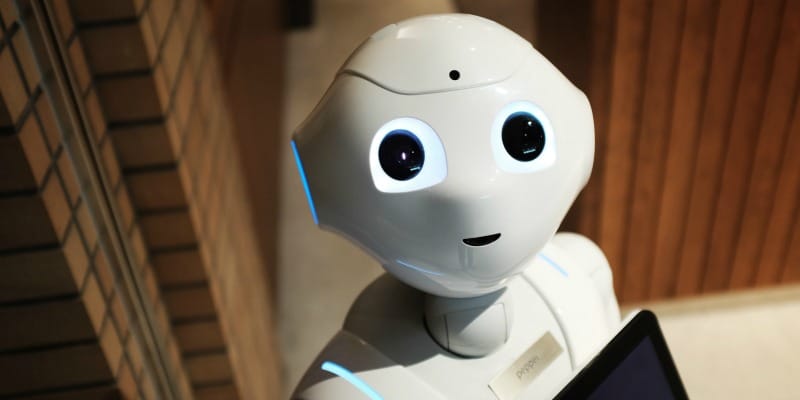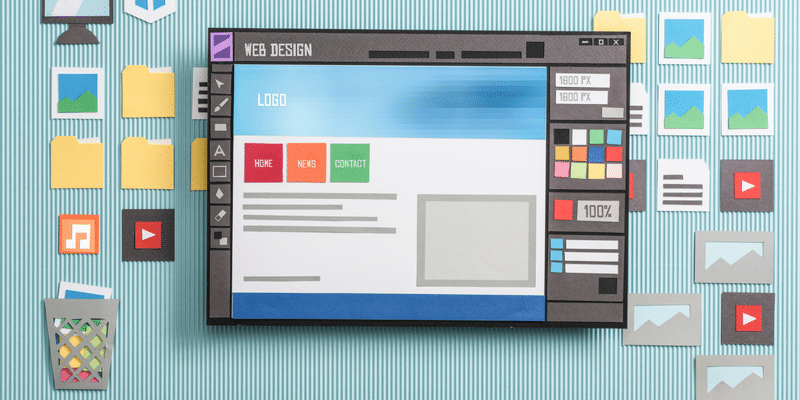If you have not yet considered how artificial intelligence can affect your brand’s digital marketing strategy, now is the time to start. A 2017 study by PwC found that 72 percent of business decision makers believe AI has the ability to allow humans to focus on meaningful tasks.
72% of business decision makers believe AI has the ability to allow humans to focus on meaningful tasks.Click To TweetIn addition, 67 percent are convinced artificial intelligence has the potential to automate processes and optimize efficiency. In fact, 34 percent have already experienced the time-saving benefits of using a digital assistant.
Digital marketers can already benefit from the expanding capabilities of artificial intelligence, and these advantages will certainly continue to increase as new technologies emerge. Following are several ways that AI has begun to impact digital marketing and effects it will likely have in the near future.
Online Marketing Predictions
AI applications can pick up the bits of personal data users leave behind when they interact with your brand. Whether they are shopping your online store, posting comments or browsing through your content, data is generated, which can reveal users’ behaviors, preferences, needs, and even potential future actions.
Remember though, if you collect personal data from EU users, you will need to be in compliance with GDPR.
Learning where their target audience is most likely to be (both online and in the real world), what they will probably be doing and when they will be there can give a brand a solid advantage.
Powerful Ad Creation
According to Magna Global, digital and mobile advertising sales will reach $237 billion (44% of global advertising revenues) in 2018. By 2020, they will make up 50% of total advertising sales.
Digital and mobile advertising sales will reach $237 billion (44% of global advertising revenues) in 2018.Click To TweetAI-powered data analytics can enable brands to pinpoint trends, predict user behavior and create highly targeted campaigns. Artificial intelligence can diminish the need to research keywords and perform other time-consuming research while still targeting the most relevant users. This can result in spending less on advertising while also increasing your ROI.
Distinctly Personalized User Experiences
Although the idea of artificial intelligence might seem contradictory to building relationships with your audience, AI can actually foster a deeper connection between users and brands.
Chatbots programmed to interact with website visitors and social media followers will become increasingly adept at communicating with customers. In addition, the data collection capabilities of AI applications make it easier for brands to create highly-customized content and greatly enrich the user experience.

Smarter Search Capabilities
Search has become one of the principal investments in digital marketing. AI can help marketers increase ROI by optimizing investments in paid search campaigns.
Artificial intelligence has the ability to convert unrecognizable queries into meaningful search results. Providing focused results for voice search is another way that AI can positively affect digital marketing efforts.
In addition, marketers could use AI to track and capture search data – both paid and organic – on a continuous basis. This provides the opportunity to identify and predict competitors’ behaviors, giving brands using AI a leg up on the competition, all while decreasing their paid search spending.
Image Recognition Proficiencies
AI-powered image recognition continues to improve. In fact, recent studies report image recognition software to exceed 99 percent accuracy.
Recent studies report image recognition software to exceed 99% accuracy.Click To TweetSome brands use facial recognition software in brick-and-mortar locations. They then link to customers’ online profiles or use AI-managed push notifications to send everything from welcome messages to digital coupons, all in real time.
In addition, image recognition could detect when photos of products are shared on social media. Brands can use this information a number of ways, from gaining a better understanding of their audience to identifying potential influencers, to promptly resolving customer service issues, to boosting customer engagement to new levels.
Natural Language Processing
NLP is another powerful feature of AI technology. Along with a basic understanding of language, it has the capability to pick up on nuances and context.
This aptitude can benefit marketers in copious manners. For instance, it might sift through brand mentions and cherry-pick those that are most likely to make a purchase.
It could be utilized to perceive indicators of intentions, such as shoppers abandoning carts or making travel plans. After mining social media for this type of data, it could return profile information or social handles of potential customers.
Content Creation
 The “Infinite Monkey Theorem” states that a monkey hitting typewriter keys at random will eventually create a particular text.
The “Infinite Monkey Theorem” states that a monkey hitting typewriter keys at random will eventually create a particular text.
If that is to be believed as true, how much more likely is it that intelligent machines, which have an increasing understanding of natural language, can do the same in a much smaller window of time?
In fact, Content Marketing Institute reports that content creating robots already exist.
For instance, an enterprise software company called Narrative Science has created a program called Quill, which uses Natural Language Generation (NLG) to create content. They explain the differences between NLP and NLG:
“NLP systems look at language and figure out what ideas are being communicated. NLG systems start with a set of ideas locked in data and turn them into language that, in turn, communicates them.”
Currently, the software is limited to creating data-backed content, such as financial reports. However, this type of tech continues to emerge.
Replaced By Machines?
Marketers may worry that their days on the job are numbered with the rise of AI. Experts say some marketing jobs could indeed go away due to advances in artificial intelligence. Other roles will change and evolve. Of course, you can expect to see new jobs and duties created because of AI, as well.
While not all these changes will happen overnight, brands and organizations are constantly developing and implementing new AI-powered technologies, which will undoubtedly cause disruption to some extent.
To remain relevant, digital marketers should actively work to stay abreast of the latest developments and even learn how to use them. Proactively experiment with artificial intelligence, making use of demos and free trials if necessary.
In addition, be sure to keep your ear to the ground, taking advantage of any opportunities to learn new skills, develop innovative roles or implement budding trends.
Preparing yourself and your company for the effects of AI on digital marketing is key to making artificial intelligence work for you and not vice versa.

Writer, editor and client advocate specializing in reputation management, content marketing, technology and non-profit topics.




